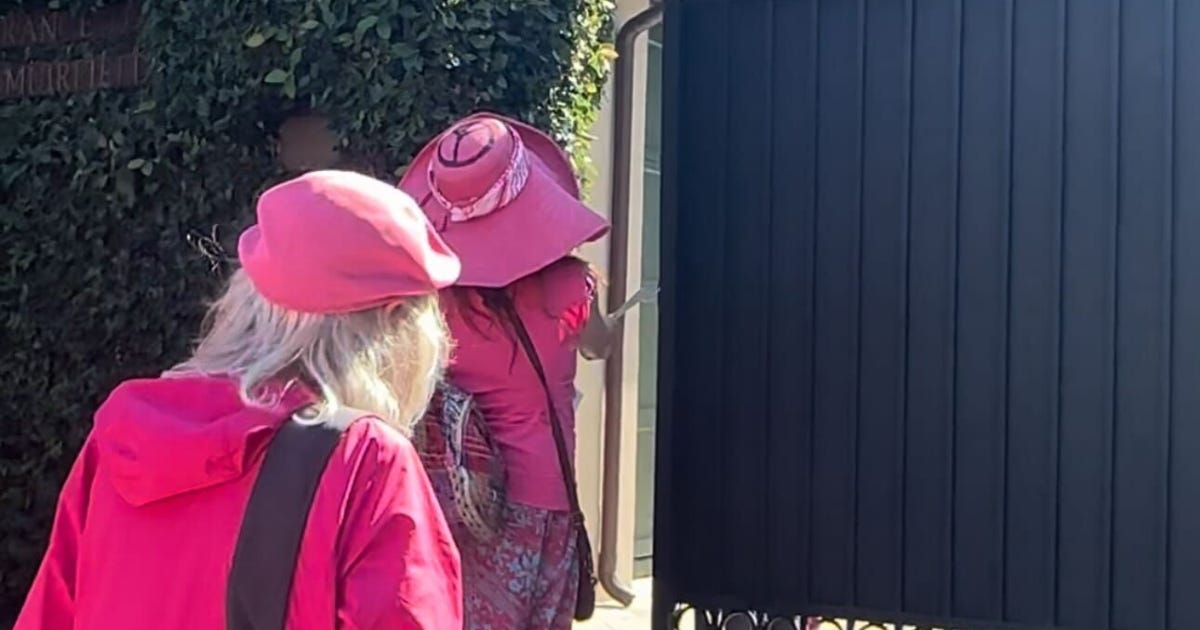Demanding Netflix Reinstates Its Palestinian Film Collection: A Call for Truth and Justice
CODEPINK News
On Thursday, during the Diwali holiday, CODEPINK gathered outside Netflix headquarters in Los Gatos to demand the reinstatement of the "Palestinian Stories" film collection. Symbolically, we called on Netflix to light a diya for truth and justice in Palestine, urging the platform to stand as a beacon for stories that matter. Members of CODEPINK, Freedom Forward, Artists Against Apartheid, and Hindus for Human Rights came together to hand-deliver a petition and a letter signed by numerous organizations, all united in their plea for Netflix to restore these vital voices at a time when they are needed the most.
A Gathering Marked by Determination
The experience of delivering the petition was moving and powerful. Our group left the petition with a piece of furniture in Netflix's main office, hoping it would reach the right hands. One security guard was kind and welcoming, even though others were less receptive. Despite these hurdles, the atmosphere was one of solidarity, with each attendee sharing heartfelt reasons for being there, their voices united in support of Palestinian stories. Many supporters showed up with minimal notice, emphasizing their commitment to this cause.
We accomplished a trifecta of delivery, with the petition now mailed, emailed, and hand-delivered to both Netflix offices. Netflix's erasure of the "Palestinian Stories" collection is the modern-day streaming service equivalent of book burning.
A Collection Silenced
On October 13-14, Netflix removed 19 films by Palestinian filmmakers or about Palestinian narratives. These films were originally part of "Palestinian Stories," a collection Netflix launched to "showcase the depth and diversity of the Palestinian experience." The collection served as a cultural touchstone, exploring the lives, dreams, families, and friendships within Palestine. Now, anyone searching the "Palestinian Stories" page sees a stark message: "You have lost your way." Clearly, in this case, Netflix is the one that has lost its way.
Freedom Forward's campaign to reinstate these films has received overwhelming support from peace and human rights organizations. A letter sent to Netflix executives on October 25, co-signed by 36 groups representing hundreds of thousands, underscored the demand to restore the collection. Likewise, CODEPINK's petition has received nearly 17,000 signatures from Netflix users, with hundreds more signing daily.
This Tuesday, CODEPINK delivered the petition directly to the home of Netflix CEO Ted Sarandos.
Silencing Palestinian Voices is Not Neutrality—It's Taking Sides
"A genocide is not the time to be silent about Palestine; instead, we must raise up Palestinian stories and voices and humanize those being dehumanized. Shame on Netflix for censoring and dehumanizing Palestinians," said Jodie Evans, CODEPINK co-founder and executive producer of Netflix's film The Square. "Taking the side of those carrying out a genocide puts you on the wrong side of history."
In response to widespread criticism, Netflix has argued that the films were removed due to licensing expirations. However, as many have pointed out, Netflix has the power to renew these licenses or replace the collection with new ones that reveal the ongoing realities of Palestinian life under occupation. With so much misinformation circulating, these stories have the power to foster understanding—yet Netflix's decision silences this crucial perspective.
Storytelling as Resistance
"Removing Palestinian films from Netflix isn't just censorship; it's an erasure that, while different in nature, resonates painfully as our people face literal extermination in Gaza," shared Nour Jaghama, CODEPINK's Palestine campaign manager. "For Palestinians, storytelling is an act of resistance, a way to preserve our history and identity against Israel's propagandized narrative that has justified occupation and ethnic cleansing for generations. Netflix is silencing the truth, leaving propaganda to go unchecked."
Netflix has a choice: it can be a platform that stands for truth and amplifies marginalized voices, or it can turn away, allowing stories of resistance and resilience to fade. We urge Netflix to make the right choice, to light a diya for truth, and restore the "Palestinian Stories" collection, supporting a fuller understanding of the Palestinian experience and humanizing those living under a history of oppression.
Tell Netflix to Reinstate Deleted Palestinian Films!
If you have already signed our petition, you can follow that up with a phone call with these talking points.







